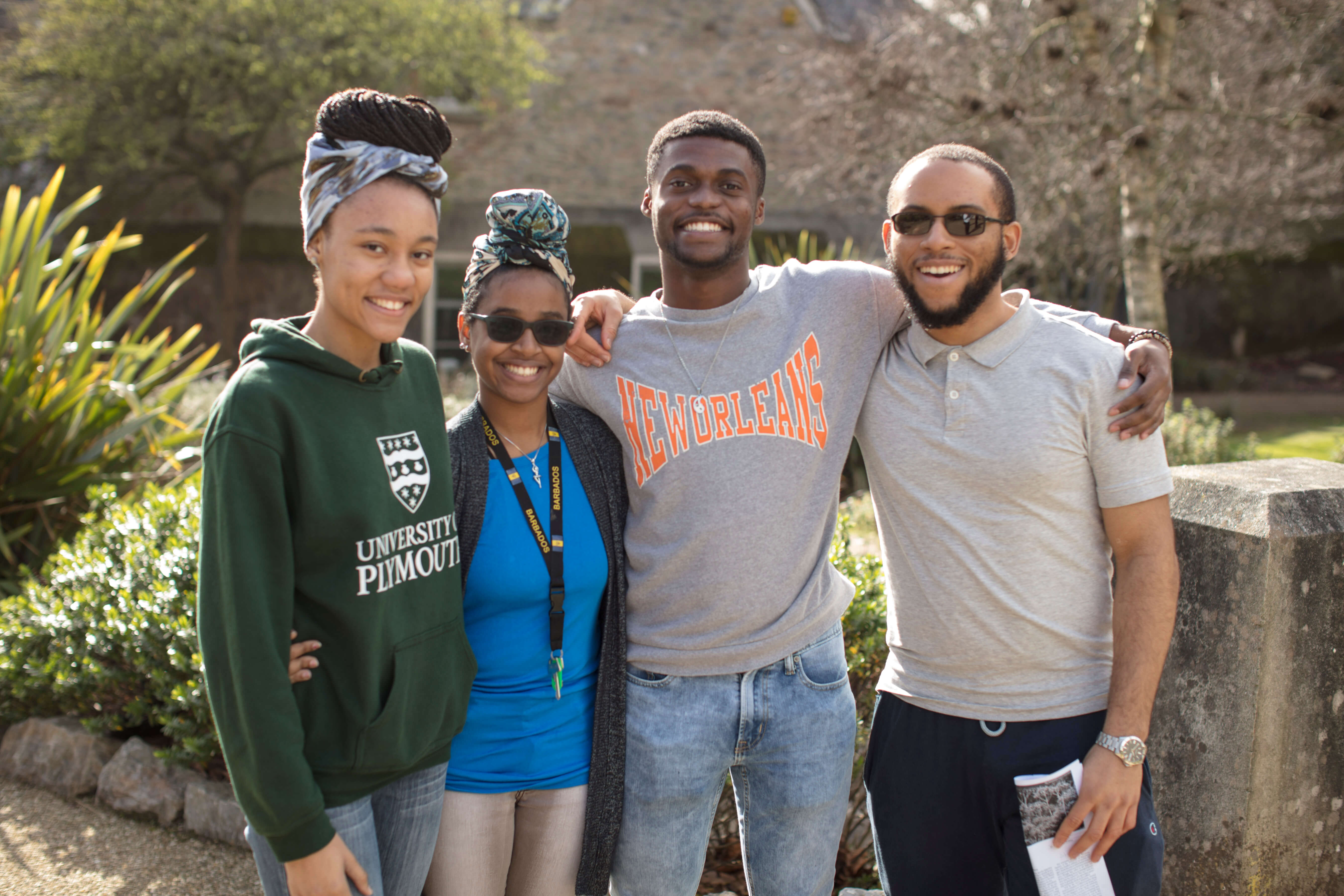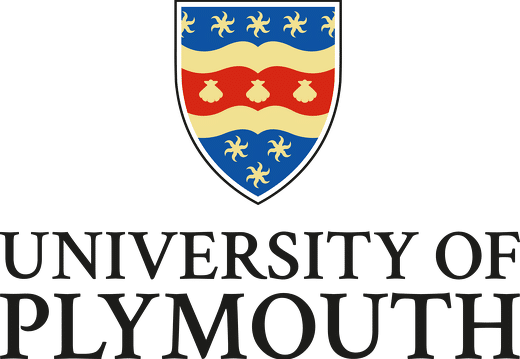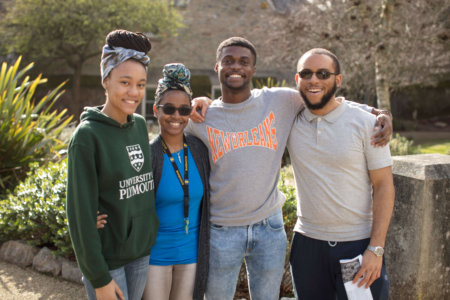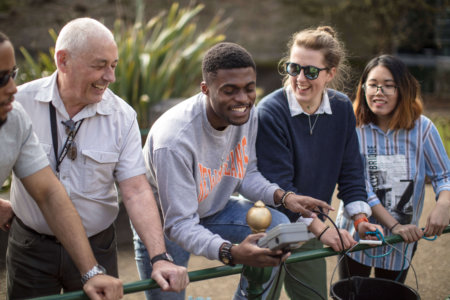There’s no better way to learn about protecting the earth’s natural wonders than by exploring. Just ask Jordan Elliot-Murray, a nature lover with utmost respect for the marine and terrestrial environment. To gain the scientific knowledge, skills and practical experience needed to launch a rewarding career, she decided to pursue a BSc (Hons) Ocean Science and Marine Conservation degree at the University of Plymouth.
In just her second week, Elliot-Murray realised the university’s approach to education –– “learning by doing” –– to be true. Lifejacket and all, she found herself at sea, on board the RV Falcon Spirit –– a 14-metre scientific catamaran –– which is used, alongside a fleet of smaller boats, for group practicals and individual project work. Her class was en route to collect water samples. Onshore, they surveyed local beaches in order to assess storm erosion.
“The amount of technology, equipment, and opportunities they have is incredible,” she says. “It’s only our second week at Plymouth and we’re already on boats, we’re already at the Marine Station, and we’re already having a fantastic time.”
https://www.youtube.com/watch?v=T1owjth8kmU
With coastal erosion, pollution, and threatened ecosystems on the rise, the School of Biological and Marine Sciences at the University of Plymouth fights to highlight the importance of the world’s oceans as a valuable, natural resource. To nurture students into protectors of marine environments, the top-ranked university offers an educational experience of a lifetime that regularly extends beyond classrooms and UK borders.
Experiences like Elliot-Murray’s are the norm, as are excursions in the Caribbean, Portugal, South Africa, Sweden, France, and more. In Plymouth itself, a natural laboratory, students gain access to the Marine Station, a landmark 4.65 million pounds development located on the shores of Plymouth Sound –– the UK’s first national marine park.
It’s no accident that this natural laboratory boasts one of the highest concentrations of world-class marine institutions, which, in addition to the University, includes: Plymouth Marine Laboratory, the Marine Biological Association and the National Marine Aquarium. The University’s teaching and research benefits from tight links between all of these organisations. The University of Plymouth is also unique in offering its students the opportunity to gain the HSE Professional SCUBA certification alongside their degree.

RV Falcon Spirit – the University of Plymouth’s very own 14-metre scientific catamaran – at full throttle, heading out to sea with first year students on board, from the University’s very own Marine Station base, located on the shores of Plymouth Sound. Source: University of Plymouth
The undergraduate degree programmes providing such opportunities are:
- BSc (Hons) Ocean Sciences with Foundation Year;
- BSc (Hons) Ocean Exploration and Surveying;
- BSc (Hons) Oceanography and Coastal Processes;
- BSc (Hons) Ocean Science and Marine Conservation
Opportunities also extend to postgraduate level on:
- MSc/MRes Applied Marine Science;
- MSc Offshore Renewable Energy;
- MSc Hydrography;
- ResM Marine Sciences
- MSc Marine Conservation
Aspiring conservationists are equally spoiled for choice. Biological Sciences is another field of study the school excels in. These degree programmes are accredited by the Royal Society of Biology, each comprising hands-on fieldwork both locally and internationally. Enrolled students explore their interests in a well-stocked laboratory and resource centre. Equipped with newfound knowledge, they participate in year-long optional work placements.
Alice Mosley, a BSc (Hons) Animal Behaviour and Welfare student, is enjoying these offerings while gaining the knowledge she will need to influence change for a greener world.
“Getting my teeth into the behaviour modules, I’m beginning to pick the areas I want to specialise in, looking ahead to my placement year and beyond,” she explains. “I want to get as much varied experience as possible. So far, I’ve worked for the Natural History Book Service. Volunteered at the Cornish Seal Sanctuary. Seen gorillas in the wild. With the university’s support, I’m on the right track to turning my passion into a career.”

BSc (Hons) Animal Behaviour and Welfare student, Alice Mosley, is influencing change for a greener world for both humans and animals. Source: University of Plymouth
After graduating, she hopes to work in a position that combines animal behaviour with conservation, leveraging her growing skills to improve the relationship between animals and society.

With world-bettering discoveries being made every day, the School of Biological and Marine Sciences truly is the perfect place to begin fast-tracking an impactful career. Source: University of Plymouth
Understanding animal behaviour in terrestrial, marine and freshwater environments is just one of the many competencies the School of Biological and Marine Sciences guarantees its future changemakers. It nurtures the minds of those passionate about conserving biodiversity; managing and restoring habitats; and providing solutions to a pending global food crisis.
The programmes producing these experts, at undergraduate level, are:
- BSc (Hons) Biological Sciences with Foundation Year;
- BSc (Hons) Conservation Biology;
- BSc (Hons) Animal Behaviour and Welfare;
- BSc (Hons) Biological Sciences;
- BSc (Hons) Zoology
And at postgraduate level, are:
Across the school’s main subject areas of Biology, Marine Science and Marine Biology, there are over 70 academics and 40 technical staff guiding over 1,200 students to achieve their ambitions. With world-leading discoveries being made every day, the School of Biological and Marine Sciences truly is the perfect place to begin fast-tracking an impactful career. Its unique location and resources are the icing on the cake.
Emma Mellor, a BSc (Hons) Animal Behaviour and Welfare and MSc Zoo Conservation Biology graduate confirms this, stating: “I would recommend Plymouth for the high-quality courses and teaching, academic support, and of course, a beautiful combination of sea and moorland. Plymouth’s beautiful location and the surrounding countryside was an added bonus!”

Emma Mellor, currently studying at PhD level, believes that the support and encouragement she received from Plymouth’s academic staff enabled her to progress to achieve her full potential. Source: University of Plymouth
It’s little wonder why numerous programmes within the School of Biological and Marine Sciences achieved 100% student satisfaction on the National Student Survey (NSS, 2019). To join them in taking in these wonders while strategising ways to ensure future generations will be able to as well, learn more here.
Follow the University of Plymouth on Facebook, Instagram, Twitter, and YouTube













